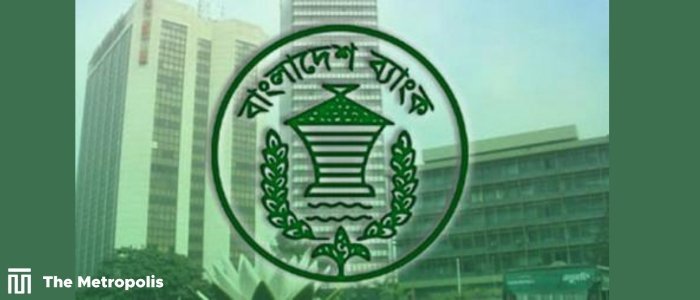Metropolis Report-
The long-term financing facility (LTFF) run by the World Bank has ended, but the Central bank has promised that the program will still support the industrial sector, particularly export-oriented firms.
The facility’s primary objective is to offer exporters, businesses, and other private-sector organizations foreign-currency soft loans with lengthy repayment terms and reduced interest rates so they can buy capital equipment, pay installation costs, and grow or establish new manufacturing industries.
A manufacturing-related borrower will be permitted to receive foreign exchange payments, according to a circular released by the central bank on Sunday (16 July).
The loan’s tenure will range from three to ten years, not counting the grace period, which the banks will choose based on the anticipated timing of project-specific cash inflows. The grace period, though, won’t last longer than a year.
The PFIs would have an approximate price range of 180-day average SOFR + 0.25 to 1.25%. The London Interbank Offered Rate was replaced by the Secured Overnight Financing Rate (SOFR), which is a benchmark interest rate for loans and derivatives denominated in dollars, according to the circular.
The $500 million LTFF program under the Financial Sector Support Project (FSSP) assisted Bangladesh’s capital-intensive manufacturing companies in gaining access to long-term borrowing in foreign currencies. The recent completion of this project coincided with increased demand for dollars to import pricey capital items and raw materials.
Bangladesh Bank developed the BB-LTFF (Bank Borrowing Long-Term Financing Facility) to further lessen the impact of the existing dollar crisis. The BB-LTFF is anticipated to reduce the stress experienced by both borrowers and lenders, having a favorable effect on the ongoing dollar crisis.
With these new programs in place, the central bank hopes to solve the economic issues brought on by the currency crisis while fostering a more stable and favorable climate for borrowers and lenders.
A central bank official said, “If you want to take a loan from foreign banks now, as per the rules of the central bank, a maximum SOFR plus 3% interest can be paid,” to alleviate the ongoing dollar crisis. The issue arises, though, when a long-term loan is required. BB-LTFF has been introduced to fix the problem.
By taking into account their cost of borrowing, operational costs, an appropriate risk-adjusted spread, and a profit margin that is between 1% and 2% over their cost of funds, the banks will decide on their lending interest rates to the borrowers, according to BB.
An individual borrower may apply for BB-LTFF through a single bank for any amount up to a maximum threshold of $5 million and for syndicated financing through two or more banks for any amount up to a maximum threshold of $10 million.
“Financing of businesses shorter than needed tenors is creating required funding mismatch,” the central bank stated. “The banking sector is experiencing a lack of adequate methods and instruments to mitigate such long-term funding gap in both local and foreign currencies.”
To import capital goods like machinery and raw materials, the productive sectors reportedly confront dollar limits. As a result, manufacturing throughput declines, which has a knock-on effect on consumer pricing and exports. Leaders in the apparel industry, which has been the primary export market for the nation up until this point, applaud the decision, saying it will help many businesses survive.
However, they believe that the requirements to obtain such loans typically continue to be exceedingly onerous. The finance will be provided by banks that are licensed to trade in foreign exchange and are referred to as participating financial institutions.
To be able to invest in the fund, banks must satisfy the minimum regulatory capital adequacy requirement, have CAMELS ratings assigned by the BB of three or better, and have fewer than 8% of their loans that are non-performing.
The official emphasized that not all banks would be eligible for the service and that institutions with a high volume of classified loans would not be eligible for loans from this source.
“Banks with a reputation for solid governance and minimal NPLs will be eligible for the BB-LTFF loan. To receive a loan through the plan, traders must take the bank’s reputation into account.
The program is anticipated to make it easier to develop firms that adhere to social and environmental norms as well as to buy ocean-going ships and specialized transport vehicles, enabling the delivery of commodities made in the nation.
Financing shall not be given to any project, however, that has a direct negative impact on the economy, society, or the environment due to land acquisition, forced relocation, harm to native populations, or loss of sources of income or livelihood.



